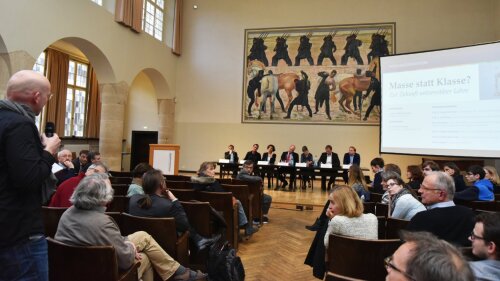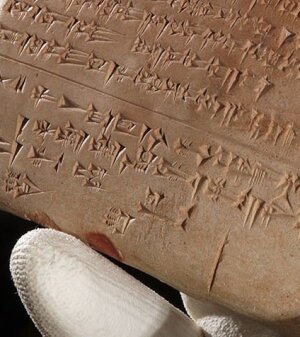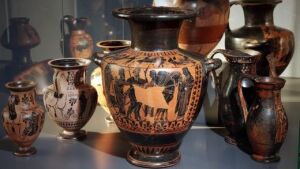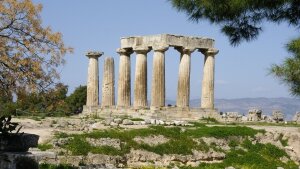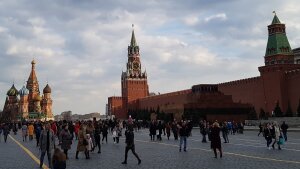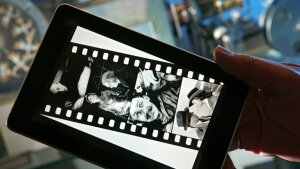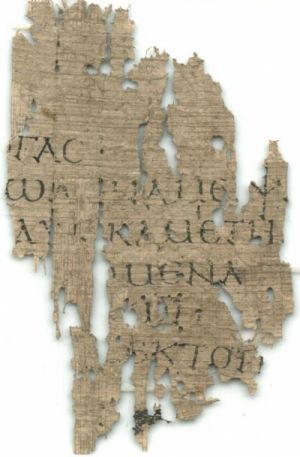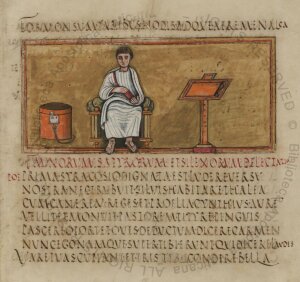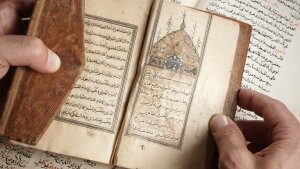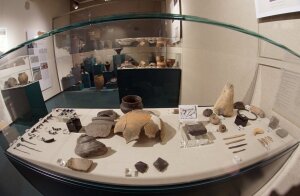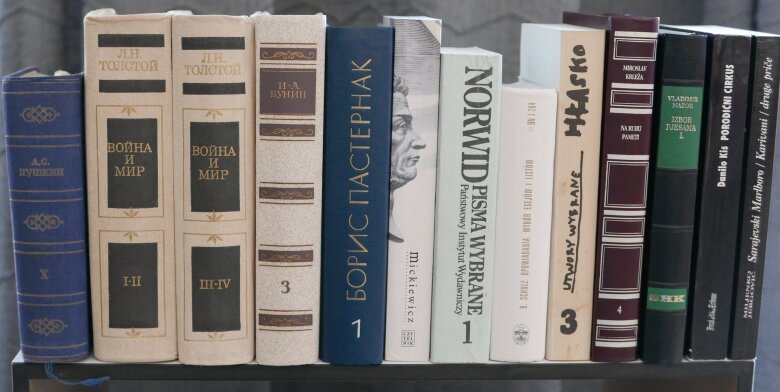
-
Ancient Oriental Studies*
Learn more decuneiform from nippur
Image: FSU JenaAncient Oriental Studies are conceived as philologically based, interdisciplinary area studies which deals with the languages and cultures of the Near East in their historic contexts, whereas the focus is on the older epochs (3th to 1st c. AD) but a line towards contemporary cultures is drawn as well. The temporal, geographic and contentual frame is, for the most part, determined by the cuneiform script which was used for a variety of genetically and typologically different languages: Sumerian, Akkadian, Hittite, Elamic, Hurrian, Urartian and others. Within this frame existed languages and literatures as well that were recorded in other writing systems (Hittite-Luwian hieroglyphs, northwest Semitic alphabets, old Persian cuneiform script, Egyptian scripts).
Subject Advisor/Person to contact:
-
Caucasian Studies
Learn more deCaucasus (Russia/Adygea)
Image: CC0Caucasian Studies are area studies that deal with the language, culture, way of life and history of the Caucasian population. The Caucasus mountains not only are a physiographic border but a cultural bridge between Europe and Asia for centuries as well. Within this historic area of tension the region became an unique space of contact which is characterised by the coexistence of the two world religions Christianity and Islam as well as by an impressive ethnical, linguistic and cultural diversity. In addition to knowledge about the regions and populations located in the Caucasus mountains, religious, political, linguistic and historiographic basis are imparted.
Subject Advisor/Person to contact:
-
Classical Archaeology*
Learn moreExternal linkAttic black-figured pottery (ca. 540–520 BC)
Image: Jan-Peter Kasper (University of Jena)Classical Archaeology deals (in a broader sense) with the tangible remains of ancient cultures, especially of Greece and the Imperium Romanum from the late 2nd millenium BC to the middle of the 6th century AD. Aside from these, geographically and temporally neighbouring cultures like those of the Bronze Age Aegean (Minoans and Mycenaeans) and those of the Apennine Peninsula (Late Bronze Age and Early Iron Age cultures of the Italics and Etruscans) as well as the fine arts and architecture of the Early Christian-Late Antique epoch form further research topics of this subject.
Subject Advisor/Person to contact:
-
Classical History
Learn moreExternal linkArchaic Temple of Apollo in Corinth
Image: T. SticklerClassical History deals with the research of the historical foundations of our culture in antiquity. Spatially the focus is on the Mediterranean region and its neighbouring cultures, provided that they made contact to the Graeco-Roman world; temporally it stretches from the Aegean Bronze Age in the 2nd millenium BC to Late Antiquity in the 7th century AD.
Subject Advisor/Person to contact:
-
Eastern European History
Learn moreExternal linkMoskau
Image: I. RebitschekThe chair of Eastern European History made it its business to take the whole Eastern Europe from the the 18th to the 20th century into account. By doing this, the three historic regions of Eastern Middle Europe, Southeastern Europe as well as the Russian Empire/Soviet Union are represented equally to a large extent within research and teaching in Jena. Eastern Europe isn't understood as an exotic, basically incomprehensible, strange world but as an integral part of the European history. Eastern European History links up language acquisiton with intercultural exchange and simultaneously imparts the methodical tools of the trade for a critical science of history. Additionally, in Jena it's closely connected with the international research landscape in the USA, Great Britain and the respective target areas.
Subject Advisor/Person to contact:
-
European Ethnology/Cultural Anthropology
Learn more deFreundschaft
Image: A. DippelCultural Anthropology is a cultural scientific discipline that turns to the human way of life in close contact with neighbouring subjects like History, Linguistics and Literary Studies, Art History, Ethnology and Religious Studies, especially in the region of one's own culture. The subject researches for and imparts knowledge about variety, differnce and identities in human communities. Centre stage are cultural phenomenoms that are addressed from an historical perspectives and those relevant to present times – around social and everyday coexistence, human sensemaking and the human individual as a cultural being.
Subject Advisor/Person to contact:
-
Film Studies
Learn moreExternal linkKino auf dem Tablet-PC
Image: Jan-Peter Kasper (University of Jena)The Department of Art History and Film Studies in Jena is the only one in all of Germany that, with its chair for Film Studies within Art History, provides the scientific engagement with the medium "film". The terms for apprehension and analysis of artworks is trained in lectures and self-study and an independently worked out overview about the history of art from the Middle Ages until today is acquired, including their own respective theory and art forms (material, sculpture, architecture, photography, film, etc.). Especially the historical-critical method is learned which is supplemented with special art-historical-, filmic-, photographical- and media- as well as pictorial-scientific methods of analysis and argumentation. One obtains a basic competence in the scientific treatment and judgement of an aesthetically designed environment and in the communication of art in some systematic and historical perspective.
Subject Advisor/Person to contact:
-
Greek Philology*
Learn moreExternal linkEuripides, Bakchen, v. 64–69
Image: P.Jen.Inv. 266 rectoGreek Philology deals with the written remains that have been begotten by Ancient Greece until the ending of antiquity. Greek history, art, philosophy as well as cultural and religious history are likewise incorporated into the review and research of language and literature. The pre-stages and aftermaths of Greek language and literature are also taken into account. Studienfachberatung/Ansprechpartner:
-
Indo-European Studies
Learn more deMap of Indo-European Languages
Image: LS IndogermanistikIndo-European Studies investigate the developments and relationships of the Indo-European linguistic family to which most of today's spoken languages of Europe are counted among. For this reason Indo-European Studies is a subject for everyone who is interested in linguistic development and linguistic comparison on the one hand and getting to know literature, culture and religion of ancient peoples from the Celts or the Germanics to the Indians or the Hittites better on the other hand.
Subject Advisor/Person to contact:
-
Latin Philology
Learn moreExternal linkPorträt des Dichters Vergil
Image: gemeinfreiLatin literature starts in the 3rd c. BC with Livius Andronicus and his translation of Homer's "Odyssey" and even today authors all around the world still write texts in the Latin language. Latin Philology is part of the Classical Philology and deals with the Latin language and literature which are closely linked to the history of Rome and the Roman Empire, from its beginnings to the approximate end of Late Antiquity. All kinds of text types and genres are investigated: from the quickly jotted everyday-letter to the sophisticated epic, from the indecent novel to the sober specialist book, from the state-supportive speech to the sharp-tongued piece of invective. Latin Philology is closely linked to the subjects of Greek Philology, Indo-European Studies, Classical History, Classical Archaeology, Philosophy and Theology and picks up on models of the literary and other studies.
Subject Advisor/Person to contact:
Prof. Dr. Meinolf VielbergExternal link
as appropriate:
PD Dr. Oliver EhlenExternal link
Christian EobaldtExternal link
Dr. Roderich KirchnerExternal link -
Latin Philology of the Middle Ages and Modern Times
Learn moreExternal linkHandwriting
Image: D. HofmannLatin shaped the literary life of our continent in the medieval and modern times of Europe. For all those who had fun in Latin classes at school the study of Latin literature of the above mentioned times offers the opportunity of discovering, interpreting and publishing nowadays totally unknowen texts (be it on paper or on parchment) – all of this to a large extent in independent research. The latin Philology of the Middle Ages and Modern Times is assigned to a special bridging function among the philological and all of the historic disciplines. Latin manuscripts are read and their place and time of origin determined. In addition there's an overview of the literary expressions that were commonly used from antiquity to the formation of the European literatures.
Subject Advisor/Person to contact:
-
Oriental Studies (Arabistics, Islamic Studies & Semitistic Studies*)
Learn more deArabic Handwriting
Image: Jan-Peter Kasper (University of Jena)The discipline of Arabistics imparts scientifically sound knowledge of the language, history and culture of the Arabic space from pre-Islamic times until today. Centre Stage is the intensive training in Modern Standard Arabic as well as in Classical Arabic, the language of the Koran. Furthermore one deals with the religio- and culture-historical, regional as well as the historic and contemporary field. The specialisation "Islamic Studies" contains another Islamic language as well as the group of themes theology, law, cultural history and literature.
Subject Advisor/Person to contact:
-
Pre- and Early Historic Archaeology*
Learn moreExternal linkAusstellung der Ur- und Frühgeschichte
Image: J.-P. KasperFrom the excavation of single settlements and cemeteries up to the analysis of whole European landscapes, from the beginnings of humanity up to the High Middle Ages: the Pre- and Early Historic Archaeology deals with a broad range of times and spaces. One works with original finds and deals with a great range of current archaeological up to modern scientific analysis methods in theory and in practice. In addition to that one gains indispensable skills in fields like spatial data processing (GIS and CAD) as well as statistical and image processing software.
Subject Advisor/Person to contact:
-
Slavistics
Learn more deBookshelf with slavic classics
Image: Andrea Meyer-FraatzThe Slavonic languages form, measured by the amount of speakers, the biggest and perhaps most diverse linguistic family of Europe. The Jena institute deals with the literatures and cultures of the whole Slavonic language area. A speciality of the Jena Slavistics is the reference to cultural spaces at the borders ot the Slavia: on the one hand the Slavistics cooperate with the Caucasian Studies which deal with the languages and nations of the Caucasus area; on the other hand in Jena there's the opportunity of studying rarely taught languages of the Balkans like Albanian or Romanian (at the Romanian Studies).
Subject Advisor/Person to contact:
-
Southeastern European Studies with Romanian Studies
Learn moreExternal linkRamsko jezero
Image: Ch. GieselThe discipline Southeastern European Studies imparts sound knowledge of the complex linguistic, cultural and social interdependence of the past and present ethnicities living in Southeastern Europe. Core disciplines are Southern Slavistics, Romanian Studies (language, literature and society of Romania the Republic of Moldova from the 19th century until today) and Eastern European History. In addition to that language skills of Southeastern European languages are imparted: Bulgarian, Serbian/Croatian, Hungarian, Albanian, Turkish and Modern Greek.
Subject Advisor/Person to contact:
Prof. Dr. Thede Kahl de (Southern Slavistics)
Dennis DierksExternal link (Eastern European History)
Dr. Victoria PopoviciExternal link (Romanian Studies)
-
Speech Science and Phonetics
Learn more deSonagramm
Speech Science and Phonetics familiarise with all aspects of spoken language and oral communication: knowledge and skills of phonetics and phonology as well as of rhetoric and aesthetic communication. Centre stage is one's own ability to communicate, vocal-artistic capability of style, the critical analysis and optimisation of communicational processes as well as the development of communicative skill by teaching and training.
Subject Advisor/Person to contact:
Arts Faculty | Deanery
Fürstengraben 27
07743 Jena
Google Maps site planExternal link
